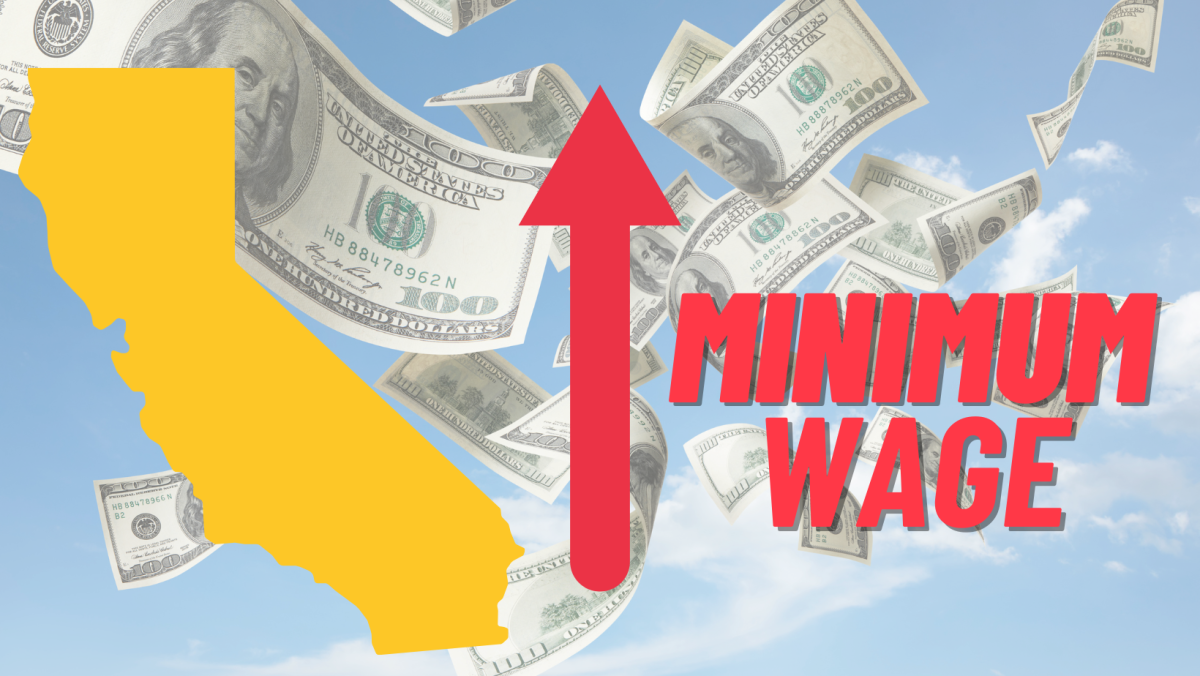Students and faculty reacted to California’s minimum wage increase from $15.50 to $16 per hour as of Jan. 1, with the state having more hourly-wage workers than any other state, according to 2023 Economic Policy Institute data.
Political science professor Elizabeth Huffman said employers are worried about raising the minimum wage and have felt the inflationary pressures to keep wages up.
“For the students, the ability to make money is really critical and what we know is that wages have not kept up with inflation and particularly this last inflation hike,” Huffman said. “Because of raising gas prices, people have fallen even further behind in their ability to make a living in California.”
A $20 per hour wage for fast-food workers is set to begin in April, followed by an $18 to $23 per hour wage for health care workers, depending on their field, according to an article by CalMatters.
Nineteen-year-old Susan Salazar, an undecided major pursuing her general education, said she works a minimum wage job at Jack’s Urban Eats and will stick with it for the time being.
“I think a lot of prices are going to go up,” Salazar said. “I hope it doesn’t really change anything.”
Mason Hammill, a 21-year-old kinesiology major, said raising the minimum wage is a short-term solution to a long-term problem.
“I’ll get some money, but long term, it’s not really a great value,” Hammill said.
Hammill said raising the minimum wage wouldn’t change much for him, but it does make him want to stay in California. He said a lot of people don’t realize prices will also be going up and shouldn’t take the wage increase at face value.
“There are a lot of employers who are looking for workers and haven’t been able to find ones that they can use,” Huffman said. “And that puts pressure on wages as well.”
Huffman said it usually takes a big event to cause deflation when gas prices go up, due to the overall increased price of goods, and the best thing students can do is continue with their studies.
“I think as students continue to add to their job skills, that certainly helps them become more eligible for salary jobs,” Huffman said.
Huffman said when students obtain their skills, the pool of competition is smaller when looking for a job.
“I sometimes see students struggling in school because they have to work so much and that’s really hard because their best bet, long term, is to get their degrees,” Huffman said. “That is their best path long term, but the immediate need for food and shelter and housing really takes a toll on them.”
Rico Smith, a 26-year-old construction management major, said he wants to be an entrepreneur and California has been at the top of the food chain.
“I’m not worried about (minimum wage), but for the people who are, good luck,” Smith said.
Huffman said raising the minimum wage in California could be beneficial, even if it’s only for a short period of time. She said the wage increase could help students work less hours and complete their degrees on-time.
“There are a lot of employers who are looking for workers and haven’t been able to find ones that they can use, and that puts pressure on wages as well,” Huffman said.

